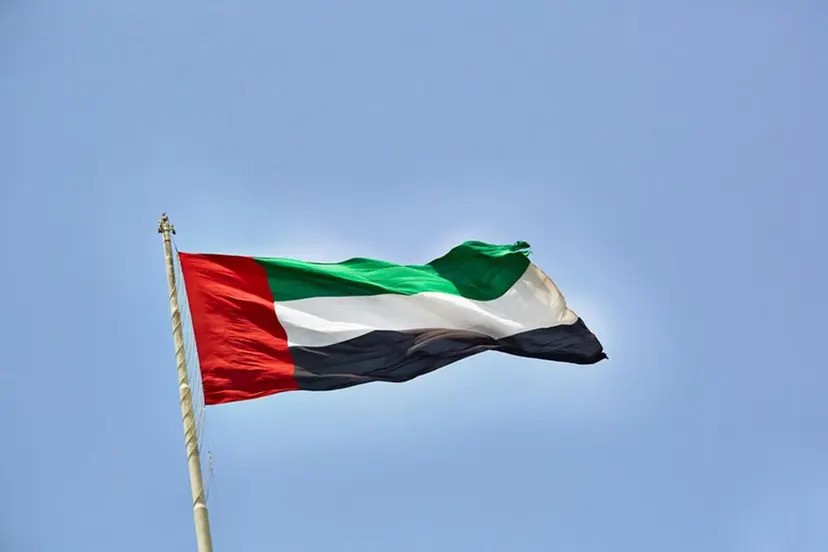Abu Dhabi, UAE — The UAE has witnessed a 37% increase in greenfield investments in 2023 to reach US$16 billion, driven mainly by business services and software and IT Services, which created a significant number of jobs and attracted substantial capital, said Mohammed Abdul Rahman Al Hawi, Under-Secretary of the UAE Ministry of Investment.
Additionally, sectors such financial services, industrial equipment, and transportation and warehousing played an important role in contributing to this growth.
“These investments led to a 7.5 percent rise in total jobs created, along with a 31 percent increase in the number of announced projects, and a 37 percent rise in announced greenfield Foreign Direct Investment (FDI) capital inflows,” he said in statements to the Emirates News Agency (WAM).
He added that nearly 50,000 jobs are expected to be generated from 1,332 projects announced. “In total, US$16 billion in greenfield FDI capital inflows were recorded in 2023. The most prominent countries involved in these investments were the U.S.A., India, the U.K., Saudi Arabia, and France, highlighting the UAE’s position as a preferred destination for international investors.”
He said that in the UAE, five key sectors are leading in attracting FDI as part of the nation’s broader economic growth and diversification strategy, which strengthens its resilience and economic sustainability. These sectors collectively contribute 86 percent of the total FDI stock. Their individual contributions are as follows:
1. Wholesale and Retail Trade – Contributing 26 percent of FDI stock, this sector benefits from the UAE’s strategic location, advanced logistics infrastructure, and strong consumer demand. In 2023, consumer spending rose by 13 percent year-on-year, with retail spending up 14 percent and non-retail spending increasing by 12 percent.
2. Real Estate – Accounting for 24 percent of FDI stock, real estate investment is driven by the UAE’s ongoing urban development and its strategic position, which allows for significant accessibility to a global population, making it a prime location for international investment.
3. Finance and Insurance – This sector contributes 21 percent of FDI stock, supported by the UAE’s stable and attractive banking environment. It has become a hub for international private wealth, with 120 of the world’s wealthiest families and individuals based in the UAE’s DIFC, collectively holding assets worth USD 1.2 trillion.
4. Mining and Quarrying – Representing 8 percent of FDI stock, this sector capitalises on the UAE’s rich natural resources and its central positioning within global supply chains. The UAE’s Mineral Resources Strategy aims to increase its share of non-oil GDP to 5 percent by 2030.
5. Manufacturing – Contributing 7 percent of FDI stock, this sector is a vital component of the UAE’s economic diversification. The launch of Operation 300bn, the UAE’s industrial strategy, has boosted investments, making it the third largest sector by nominal GDP.
In terms of international investment, the top five countries contributing to FDI stock in the UAE are:
1. United Kingdom – 15 percent of FDI stock.
2. India – 6 percent.
3. Saudi Arabia – 4 percent.
4. Netherlands – 4 percent.
5. China – 4 percent.
“Other notable contributors include France (4 percent), the USA (3 percent), Kuwait (3 percent), Japan (3 percent), and Switzerland (2 percent). These countries reflect the UAE’s position as a leading global hub for business and investment, drawing significant capital from across the world,” Al Hawi said.
He went on to say, that the UAE has actively pursued international partnerships to enhance its global economic presence. As part of these efforts, the country has signed six ratified Comprehensive Economic Partnership Agreements (CEPAs) with key global economies: India, Turkiye, and Indonesia. “These agreements aim to boost trade, investment, and economic cooperation.”
In addition to the CEPAs, the UAE has entered into 115 bilateral investment treaties with countries worldwide, and 146 double taxation agreements. “These treaties aim to protect and promote cross-border investments and prevent the double taxation of income and foster international economic relations.”
“These agreements are a testament to the UAE’s strategic approach in positioning itself as a leading global hub for trade and investment,” he noted.
The Under-Secretary of the Ministry of Investment stated that the UAE’s vibrant greenfield investment landscape continues to be a major driver of economic growth, job creation, and capital inflows, solidifying its reputation as a global investment hub. “The country’s dynamic business environment, supported by strategic economic initiatives, attracts substantial greenfield investments from various countries, helping to foster innovation and sustainable development.”
He explained that in 2023, the UAE attracted significant greenfield investments from several key countries. “The largest capital investments announced were from the United States (US$3.8 billion), India (US$3.3 billion), the United Kingdom (US$1.2 billion), France (US$1.1 billion), and Saudi Arabia (US$1.1 billion). These figures reflect the growing confidence in the UAE as a strategic destination for international investments, reinforcing the country’s role as a major player in the global investment landscape.”
The UAE has firmly established itself as a major player in global FDI, with total overseas investments—covering both public and private sectors—estimated to have reached US$2.5 trillion by early 2024. “This significant financial presence positions the UAE as an influential economic force, with a strong focus on emerging markets and strategic partnerships that open new investment opportunities globally.”
Al Hawi explained that a key example of the UAE’s investment strategy is its landmark US$35 billion agreement with Egypt to develop Ras Al Hekma, the largest direct investment in Egypt’s history. “This ambitious project reflects the UAE’s commitment to regional development and showcases the broader economic impact of its foreign investments. Once completed, the UAE’s total investments in Egypt are expected to reach US$65 billion, further enhancing Egypt’s role as a top destination for foreign direct investment.”
The Under-Secretary of the Ministry of Investment concluded, “This proactive approach to international investment is evident in the UAE’s participation in strategic alliances, cross-border deals, and acquisitions, strengthening its presence on the global economic stage. With investments spanning across 90 countries, the UAE’s global investment portfolio extends to key markets such as India, Indonesia, Egypt, Morocco, and ASEAN nations, as well as several European countries and Turkiye. These efforts reflect the UAE’s ongoing commitment to expanding its economic influence and fostering sustainable growth through international cooperation.”









